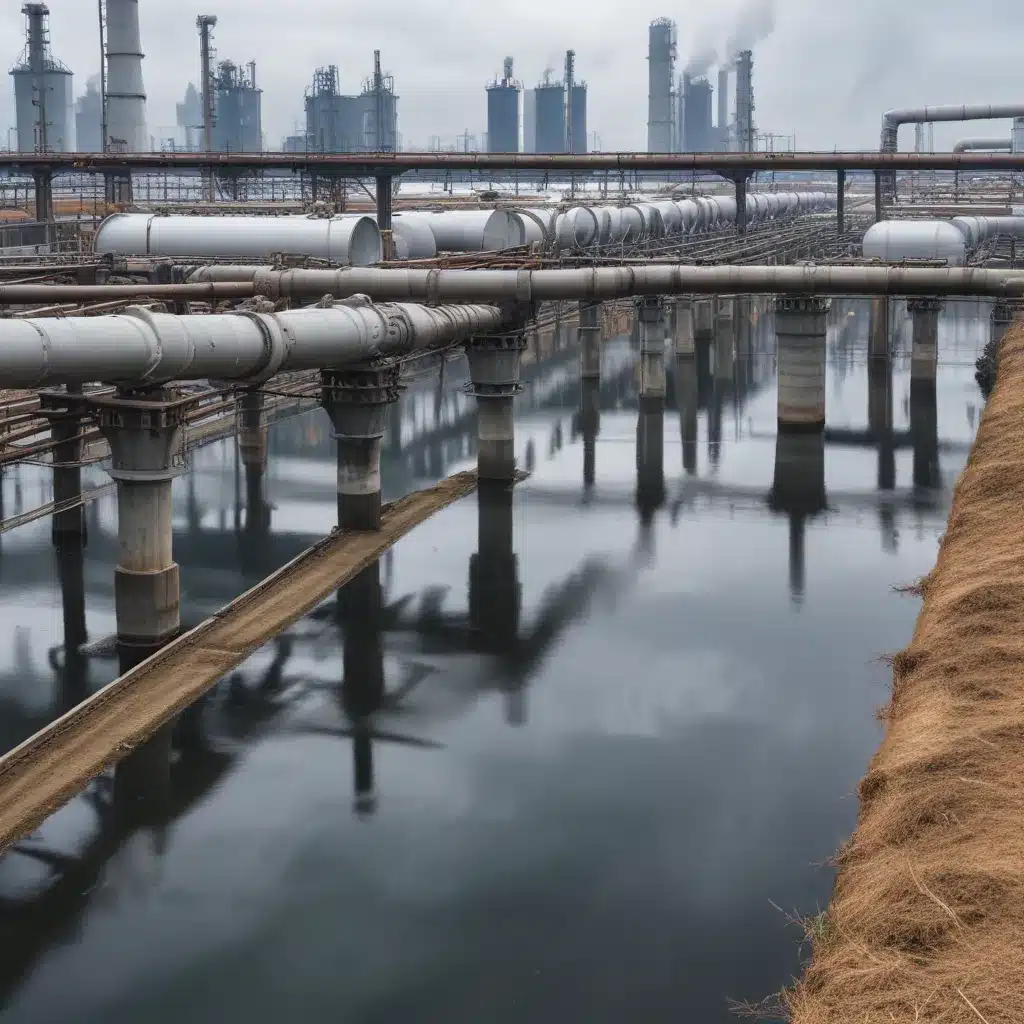
The Imperative for Water Efficiency in Industry
As the world grapples with the growing challenges of climate change, the industrial sector has a pivotal role to play in driving sustainable water management and conservation. Water is a crucial resource for many industrial processes, from manufacturing and power generation to mining and chemical production. However, the increasing demand for water, coupled with the impacts of climate change, such as droughts and water scarcity, has placed a significant strain on this precious commodity.
To address these challenges, the industrial sector must prioritize water efficiency as a key strategy for climate change mitigation. By implementing innovative technologies, adopting best practices, and fostering collaborative partnerships, industries can reduce their water footprint, contribute to environmental sustainability, and build resilience in the face of water-related risks.
Unlocking the Benefits of Water Efficiency in Industry
Reducing Water Consumption and Costs: Water efficiency measures can lead to significant cost savings for industrial operations. By implementing water-saving technologies, optimizing processes, and recycling water, industries can reduce their water withdrawal and wastewater treatment costs, ultimately improving their bottom line.
Enhancing Climate Resilience: As climate change increases the frequency and severity of water-related disasters, such as droughts and floods, water-efficient industrial practices can help build resilience and ensure business continuity. By reducing reliance on scarce water resources, industries can better withstand the impacts of water scarcity and mitigate the risks associated with water-related disruptions.
Promoting Environmental Sustainability: Water efficiency in industry aligns with broader sustainability goals, as it helps conserve a precious natural resource and reduce the environmental impact of industrial activities. By minimizing water withdrawal and wastewater discharge, industries can contribute to the preservation of water-related ecosystems and support the overall health of the environment.
Driving Innovation and Competitiveness: The pursuit of water efficiency can spur innovation within the industrial sector, as companies seek to develop and adopt advanced water management technologies and best practices. This, in turn, can enhance the competitiveness of industries, as they become more efficient, cost-effective, and environmentally responsible.
Strategies for Promoting Water Efficiency in the Industrial Sector
Implement Advanced Water Management Technologies
The industrial sector can leverage a wide range of water management technologies to improve efficiency and reduce water consumption. Some key examples include:
- Water Recycling and Reuse Systems: Implementing closed-loop water recycling systems allows industries to reuse and recycle water within their operations, reducing the need for freshwater withdrawal and wastewater discharge.
- Leak Detection and Monitoring: Deploying advanced leak detection systems and real-time water monitoring technologies can help identify and address water leaks, reducing water losses and improving overall system efficiency.
- Water-Efficient Process Equipment: Investing in water-efficient manufacturing and processing equipment, such as high-efficiency chillers, cooling towers, and washing machines, can significantly reduce water usage.
- Wastewater Treatment and Reuse: Implementing advanced wastewater treatment technologies, such as membrane filtration or biological treatment, can enable the reuse of treated wastewater for various industrial applications, reducing the need for freshwater withdrawal.
Adopt Proven Water Management Practices
In addition to technological solutions, the industrial sector can also implement a range of proven water management practices to enhance efficiency and sustainability:
- Water Audits and Assessments: Conducting regular water audits and assessments to identify water-intensive processes, pinpoint areas of water waste, and develop targeted efficiency strategies.
- Employee Engagement and Training: Educating and empowering employees to adopt water-saving behaviors and best practices, such as water conservation, leak reporting, and maintenance of water systems.
- Integrated Water Management: Adopting a holistic, integrated approach to water management that considers the entire water lifecycle, from withdrawal to discharge, and optimizes water use across all industrial processes.
- Benchmarking and Goal-Setting: Establishing water use benchmarks and setting ambitious, yet achievable, water efficiency targets to drive continuous improvement and accountability.
Foster Collaborative Partnerships and Advocacy
Promoting water efficiency in the industrial sector requires a collaborative approach that engages with various stakeholders, including policymakers, water utilities, and community organizations. Some key strategies include:
- Public-Private Partnerships: Collaborating with local authorities and water utilities to develop joint initiatives, such as incentive programs or infrastructure upgrades, that support water efficiency in industrial operations.
- Industry Associations and Initiatives: Participating in industry-led associations and initiatives that promote water stewardship and share best practices among member companies.
- Community Engagement: Engaging with local communities to understand their water-related concerns and develop collaborative solutions that address the needs of both the industry and the surrounding environment.
- Policy Advocacy: Advocating for policy frameworks and regulations that incentivize water efficiency, promote water-saving technologies, and ensure sustainable water management practices across the industrial sector.
Conclusion: Embracing Water Efficiency for a Sustainable Future
As the world confronts the pressing challenges of climate change, the industrial sector has a critical role to play in driving sustainable water management. By embracing water efficiency as a key strategy, industries can not only reduce their environmental impact but also enhance their resilience, competitiveness, and overall business sustainability.
Through the adoption of advanced water management technologies, the implementation of proven water management practices, and the fostering of collaborative partnerships, the industrial sector can lead the way in promoting water efficiency and contributing to a more sustainable future. By taking these actions, industries can not only mitigate the risks of climate change but also position themselves as responsible stewards of our most precious natural resource – water.
To learn more about water efficiency and sustainability initiatives, visit Joint Action for Water.

